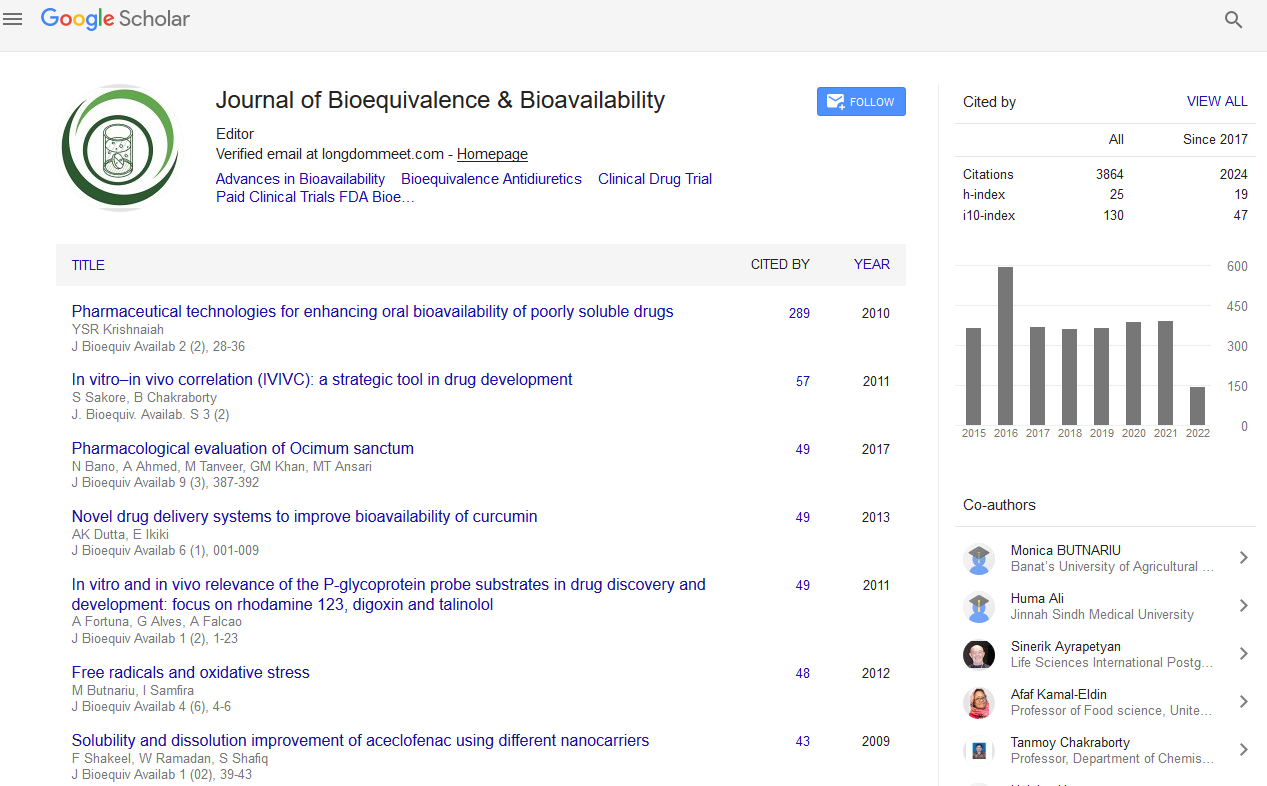PMC/PubMed Indexed Articles
Indexed In
- Academic Journals Database
- Open J Gate
- Genamics JournalSeek
- Academic Keys
- JournalTOCs
- China National Knowledge Infrastructure (CNKI)
- CiteFactor
- Scimago
- Ulrich's Periodicals Directory
- Electronic Journals Library
- RefSeek
- Hamdard University
- EBSCO A-Z
- OCLC- WorldCat
- SWB online catalog
- Virtual Library of Biology (vifabio)
- Publons
- MIAR
- University Grants Commission
- Geneva Foundation for Medical Education and Research
- Euro Pub
- Google Scholar
Useful Links
Share This Page
Journal Flyer

Open Access Journals
- Agri and Aquaculture
- Biochemistry
- Bioinformatics & Systems Biology
- Business & Management
- Chemistry
- Clinical Sciences
- Engineering
- Food & Nutrition
- General Science
- Genetics & Molecular Biology
- Immunology & Microbiology
- Medical Sciences
- Neuroscience & Psychology
- Nursing & Health Care
- Pharmaceutical Sciences
Abstract
Antiangiogenic and Anti-invasive Effect of Diallydisulfide: An In-vitro Investigation Using Prostate Cancer Cell Line and In-vivo Using Zebrafish Embryo Model
Arunkumar R, Singh PR, Elumalai P, Sambantham S, Rani NJ, Dinakaran P and Arunakaran J
Introduction: Prostate cancer is a major public health cancer worldwide, since it represents one in 10 cases of cancer in men and is of the highest incidence than any other cancers in India. Garlic has been extensively used as dietary supplements and as natural pharmaceutical in the treatment of various diseases including cancer.
Methods: In-vitro Migration and Invasion assay used to assess the invasion and migration potential of cancer cells, upon treatment with DADS. In addition, using zebrafish embryo model anti-angiogenic potential of DADS was observed by RBC staining. Signaling molecules involved were analyzed using RT–PCR and Western bolt method respectively.
Results: The result was found that DADS down-regulated PI3K/Akt and Ras/Raf signaling leading to down-regulation of MMPs and some pro-inflammatory/pro-angiogenic molecules especially VEGF expression at transcriptional level through hypoxia-inducible factor-1 (HIF-1). Thereby, it clearly demonstrates that the anti-invasive and anti-metastatic activity of DADS is mainly mediated through the inhibition of various pro-inflammatory and pro-angiogenic factors which regulated by this PI3K/Akt and Ras/Raf signaling. Furthermore, abrogation of blood vessel formation reversed by DADS studied using zebrafish model supports the anti-angiogenic effect of DADS.
Conclusion: These findings emphasize the potential use of DADS against pathological situations where angiogenesis is stimulated during tumor progression and metastasis of prostate cancer.


